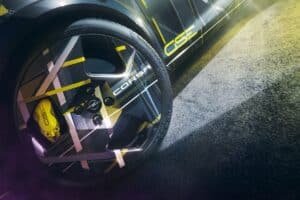Global new energy vehicle uptake not being reflected in full in South Africa.

Principal BMW and Mini retailer, Legacy Motor Group, has called for a rethink and implementation of government incentives for electric and so-called new energy vehicles – which includes hybrids – without hesitation.
In a statement, the group’s chairman, Mpho Dipela, said South Africa has been slow to capitalise on the global electric vehicle sales boom that posted a 108% increase between 2021 and 2022 with sales of 6.7 million vehicles.
EV uptake in South Africa should be more
Although offset of hybrid and electric vehicles increased from 2021’s 896 to 3 092 last year, Diplea said a “lack of clarity about South Africa’s investment drive to transform the automotive industry to manufacture new electric cars” still prevails with no explanation from government seemingly existing.
“In terms of policy, South Africa offers limited subsidies for driving the acceleration of the electric vehicle market. The Department of Transport did introduce the Green Transport Strategy, which provides key incentives to produce and sell electric vehicles, but as part of a global industry, the domestic automotive industry cannot afford any delays,” Diplea said.
“In fact, Minister of Transport Fikile Mbalula outlined obstacles impeding progress, of which the biggest one is cost. He further noted that incentives had not been implemented yet, including the national tax regime for electric vehicles, which has led to a barrier in trade. We urgently need to create incentives for manufacturing vehicles”.
Import tax needs to go
A decrease in the current 25% tax import hamstringing electric vehicles would go a long way to aid buyer access to EVs that remain expensive and out of reach of many South Africans, Diplea added.
ALSO READ: Considering the plug over the pump? Five tips worth noting
In 2021, a survey by AutoTrader found that South Africans, while keen on electric vehicles, are unable to afford them, new or used, as a result of the prices still being too high.
“The automotive sector must play a vital part in the global electric vehicle value chain. In 2021, the Department of Trade, Industry and Competition released an Auto Green Paper to create a clear policy foundation that outlines investment and a tax system,” Diplea said.
“This policy must be used to build a resilient raw material supply chain that supports the country’s efforts to be a global player”.
EV network expanding
Last week, Audi, in partnership with energy firm Rubicon, announced the introduction of 43 more charging stations at selected areas in the country with plans afloat to make more available in due course.
“While load shedding is a reality to which South Africans have become accustomed, it is worth pointing out that our charging network also capitalises on solar installations, where possible, to keep the charging stations optimally operational,” Audi South Africa Head Sascha Sauer said in reference to criticism against EVs as the country’s worsening energy crisis continues to deteriorate.
A full list of the country’s charging stations, as part of the GridCars network, can be viewed here.
Support Local Journalism
Add The Citizen as a Preferred Source on Google and follow us on Google News to see more of our trusted reporting in Google News and Top Stories.






